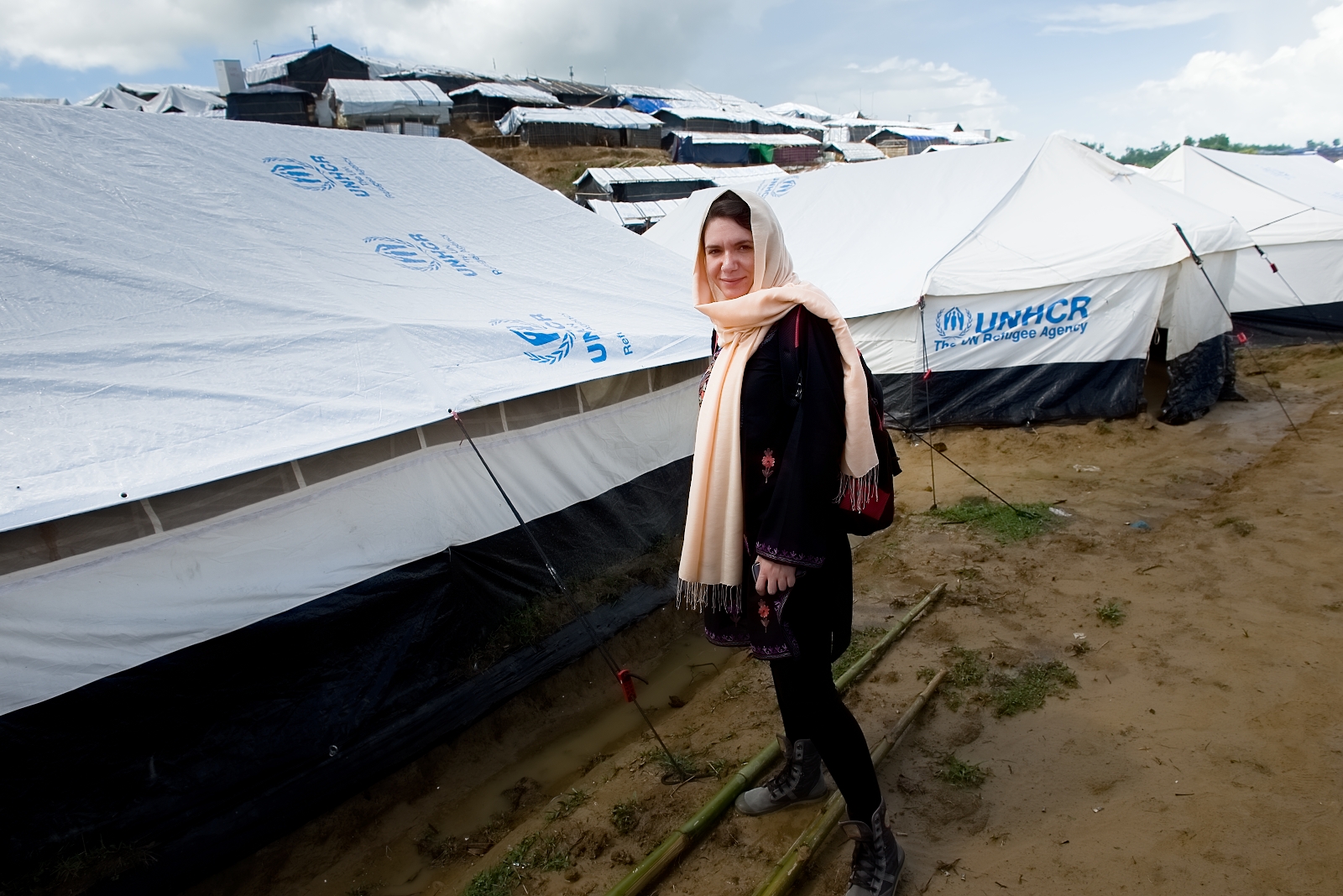News & Updates
Rapid Rohingya response: Our emergency response approach
13 June 2018

by Martina Aureli, Sales & Business Development Manager – Asia & Oceania at NRS International
“We work hand in hand with humanitarian aid agencies to ensure a successful and fast supply of high quality shelters and life-saving core relief items.”
Natural disasters and health epidemics are unpredictable. When disaster strikes, our job is to immediately activate the supply chain and enable humanitarian aid organizations to efficiently receive and distribute vital aid to the affected communities. We do this through our award-winning Rapid Response Strategy (RRS)by mobilizing our stock from the emergency warehouses and carrying out field assessments.
The world’s fastest growing refugee crisis
The Rohingya crisis is one of the fastest moving and largest refugee emergencies in the world, with thousands of people fleeing sudden and cruel violence in Myanmar. To date, it is estimated that more than 700,000 people reached Bangladesh.
The exodus began in August 2017, when violence broke out in Myanmar’s Rakhine State. The majority of Rohingya fleeing to Bangladesh were women and children, including newborn babies. Many others are elderly people requiring additional aid and protection. They had nothing and need everything.
Over half of the new arrivals have sought shelter in and around the existing refugee camps and in makeshift sites that existed before the influx. The largest refugee camp in Bangladesh is Kutupalong, but limited space caused spontaneous settlements to spring up in the surrounding countryside and nearby Balukhali as refugees kept arriving.
From the field
In October I conducted a field assessment in Cox’s Bazar to better understand how to optimize our intervention, learn about the challenges encountered by the organizations in the field and to identify the best logistics solutions to facilitate the supply chain.
When I visited Kutupalong and Balukhali camps, I observed the living conditions of the refugees and I was reminded once more how indispensable the availability of quality relief items in emergency settings is. I was accompanied by a local, aid worker from Cox’s Bazar and a professional photographer, who happens to be a passionate advocate of human rights. With their support, I was able to interact with the beneficiaries of our products, listen to their stories and gather feedback on their existing needs in terms of food, health and shelter. Thousands of robust poly-cotton family tents, many of which were our Viva Family Tents supplied by us, became their new homes. In Kutupalong camp, appropriate shelter means protection, dignity and safety.
A second essential relief item I want to highlight is plastic sheeting. The high-quality tarpaulins made of strong material that offers shelter from the weather, stability in wind and UV-resistance can really make a difference. One of the main challenges of the emergency response in Bangladesh is the unavailability of locally produced relief items in compliance with the international standards. I experienced firsthand the dramatic difference between poorly built makeshift shelters of split bamboo and black plastic sheeting locally available and a solid emergency structure of bamboo frame with a quality relief tarpaulin.
As a leading manufacturer of relief goods, I believe we have the responsibility to share the message that quality means appropriate assistance and effective response.
Relief products supplied
Despite logistical challenges, we managed to get the much-needed relief items directly to Myanmar and Bangladesh using air and sea transportation:
- more than 100,000 thermal blankets
- more than 200,000 sleeping mats
- 60,000 tarpaulins
- 36,000 water containers
- 4 mobile storage units
- 21,000 long-lasting insecticidal nets supplied by our subsidiary, TANA Netting.
Image credit: Sanjoy Shubro
NRS International are a sponsor of the upcoming AIDF Asia Summit taking place in Bangkok on 20-21 June 2018.